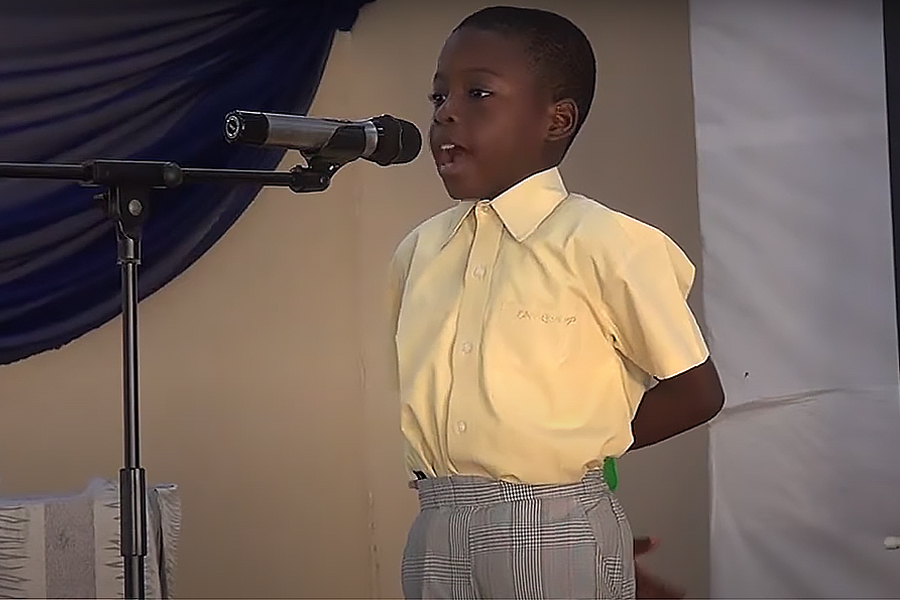Public speaking for kids is an important and powerful skill needed for success in various aspects of life. The earlier a child begins, the less difficult it will be. Although some kids take to it naturally, others tend to be more fearful of standing and talking in front of a crowd.
One of our missions at Greensprings School is to promote lifelong learning in an open and caring atmosphere that motivates students to be confident and responsible global citizens and we hope that by sharing this guide today, we would be able to help you pave the best path for your child to becoming a confident public speaker. Below are 10 ways parents can make public speaking for kids easier:
-

-
Use technology:
It is key to know that your children’s first and friendliest audiences are their family and friends. As parents, you can consider creating frequent invitations for them to chat and ask them questions on the phone or through a webcam with relatives. This will help a timid child overcome early communication anxiety.
-
Read To Your Kids:
Stimulate and support your child to play with voice modulations when reading their favourite storybooks. You can start by reading in a happy and excited voice, a loud voice, a quiet voice and even a funny voice. Also show them how to play with the pace of their voice and how to speak faster, slower and pause for a moment after each sentence when reading.
-
Play Fun Impromptu Games:
A great way to also make public speaking for kids easier is to develop impromptu games that start off easy. Then as your children gain confidence in public speaking, you may introduce them to more difficult spontaneous games. Impromptu activities are excellent fun ways of teaching children to think on their feet, as the major fear of public speaking stems from their anxiety of not knowing what to do if they make a mistake. You can begin to help them overcome this anxiety by training your kids to think on their feet.
-
Praise Your Child and Give Positive Feedback:
Give your input whenever your children are rehearsing a public speaking activity. You can advise them on how to enhance their thought process or tone of delivery. You may also provide comments on their gestures. Consider, however, that feedback must be done at certain times and should not get in the way of the presentation; so endeavour not to make revisions while they are still speaking, because interrupting them will only serve as a distraction and can aggravate their anxiety.
-
Select The Right Outfit For Your Child:
Help your child select a very professional and comfortable outfit to give them a sophisticated look as they prepare for a rehearsal. This is because looks will not only influence the way your children are perceived by people but will also boost their confidence in the long run.
-
Record the Child’s Rehearsal:
Children are not aware of how they sound, appear or move when they deliver a speech. Recording their rehearsal will help them get familiar with these aspects; you may start by recording with a mobile device or encourage them to present in front of a mirror. After recording, show them what you captured and let them see how they appear for themselves. This way, they will remember not to make the same mistakes the next time they practice, and they will also gain confidence as they become used to seeing and hearing themselves on screen.
-
Encourage Them To Join a Public Speaking Group In School:
The public speaking club is one of the extracurricular activities our school offers. Through this medium, we have organised debate competitions, prepared students to participate in inter-school competitions, and also organised events where prominent speakers are invited to conduct workshops on public speaking. Some of our students have also been nominated and have won awards for their outstanding performances. Such as 2021 AISEN Public Speaking Competition, National Youth Speaking and Leadership (NYSL), AISEN Spoken Word 2022, AISEN’s regional debate competition, KPMG debate amongst many others. You can explore ways to get your child involved in public speaking related activities in his/her school.
-
Seek Out Other Organised Opportunities:
Enrol your child in activities like drama, scouting or science fairs. These activities offer roles in a supportive environment that requires participants to get in front of an audience. This will help your child to optimally utilise every opportunity to address an audience.
-
Regular Practice:
Everything gets better with practice, and the same applies to the art of public speaking. They can do a trial run for a few friends and families who can create distractions, ask questions, and provide necessary feedback.
-
Be A Source Of Inspiration:
The first role model that children normally have is their parents. Your children will see your example as a pattern for the way life is to be lived, especially in the digital age, where making podcasts and short clips for the media is prevalent. Children are always very excited to watch their parents doing same, and will most likely imitate what they see. Your children will also begin to record themselves giving a presentation in order to emulate you.
Overall, in this journey of public speaking for kids, as a parent, you must be a voice of encouragement and support to them because no matter what life path a child chooses, their ability to communicate well will help them stand out and achieve more.

